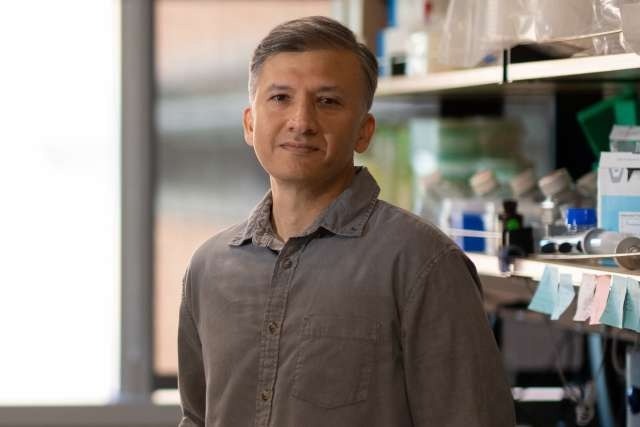At the UCLA Jonsson Comprehensive Cancer Center, scientists have uncovered a novel function for a protein known as extracellular signal-regulated kinase (ERK) within a pathway activated by interferon-gamma, capable of inducing cellular self-destruction.
 Ameya Champhekar, first author of the study. Image Credit: University of California, Los Angeles
Ameya Champhekar, first author of the study. Image Credit: University of California, Los Angeles
Their investigations revealed that interferon-gamma signaling triggered an excessive activation of ERK in human melanoma cell lines. When the ERK protein is hyperactive, it induces cellular stress, which, in turn, culminates in cell death, facilitated by specific proteins called DR5 and NOXA. The inhibition of ERK signaling prevented cell death in as many as 74% of these cell lines.
ERK signaling is always active at a low level in melanoma cells and is important for tumor cell survival. However, our data show that interferon-gamma causes overactivation of the ERK pathway, which triggers cell death. This establishes a new paradigm in the field that the overactivation of a pathway involved in oncogenic signaling is detrimental to cancer cells. This discovery sheds light on how interferon-gamma stops tumor cell growth and why it might not always work, helping us better understand how to overcome resistance.”
Ameya Champhekar, Study First Author and Adjunct Assistant Professor, Medicine, David Geffen School of Medicine, University of California, Los Angeles
Background
Interferon-gamma, a signaling molecule that stimulates the immune response, plays a role in triggering the immune system to identify and combat cancer cells. While its capacity to hinder tumor cell growth is established, the precise mechanisms behind this action remain incompletely elucidated. Comprehending the workings of interferon-gamma offers the prospect of therapeutically targeting this pathway and could provide a rationale for crafting innovative combination therapies.
Method
The research group employed a range of screening methodologies to decipher the impact of interferon-gamma on melanoma cells and its potential role in halting their proliferation. They conducted chemical genomics and comprehensive genome-focused CRISPR/Cas9 screens utilizing melanoma cell lines derived from patients to identify critical elements within the pathway responsible for interferon-gamma-induced growth inhibition.
Additionally, transcriptomic profiling was employed to ascertain which pathways leading to cell death were activated. To validate the involvement of these pathways in inducing cancer cell demise upon exposure to interferon-gamma, live imaging experiments were conducted in conjunction with apoptosis assays.
Impact
Despite the transformative impact of immunotherapy on cancer treatment, particularly for advanced cases, its efficacy remains limited to a small subset of patients. Interferon-gamma, a vital tool in the arsenal of T cells fighting tumor cells, has recently been found to permeate deeply into tumors, offering the potential for far-reaching growth-inhibitory effects on cancer cells.
Nevertheless, until this point, harnessing its capacity to impede tumor growth for clinical advantage has remained unclear. This newfound comprehension of the interferon-gamma growth inhibition pathway represents a crucial stride toward devising more effective approaches for targeting cancers that exhibit poor responsiveness to immunotherapy.
Source:
Journal reference:
Champhekar, A. S., et al. (2023). ERK mediates interferon gamma-induced melanoma cell death. Molecular Cancer. doi.org/10.1186/s12943-023-01868-x.